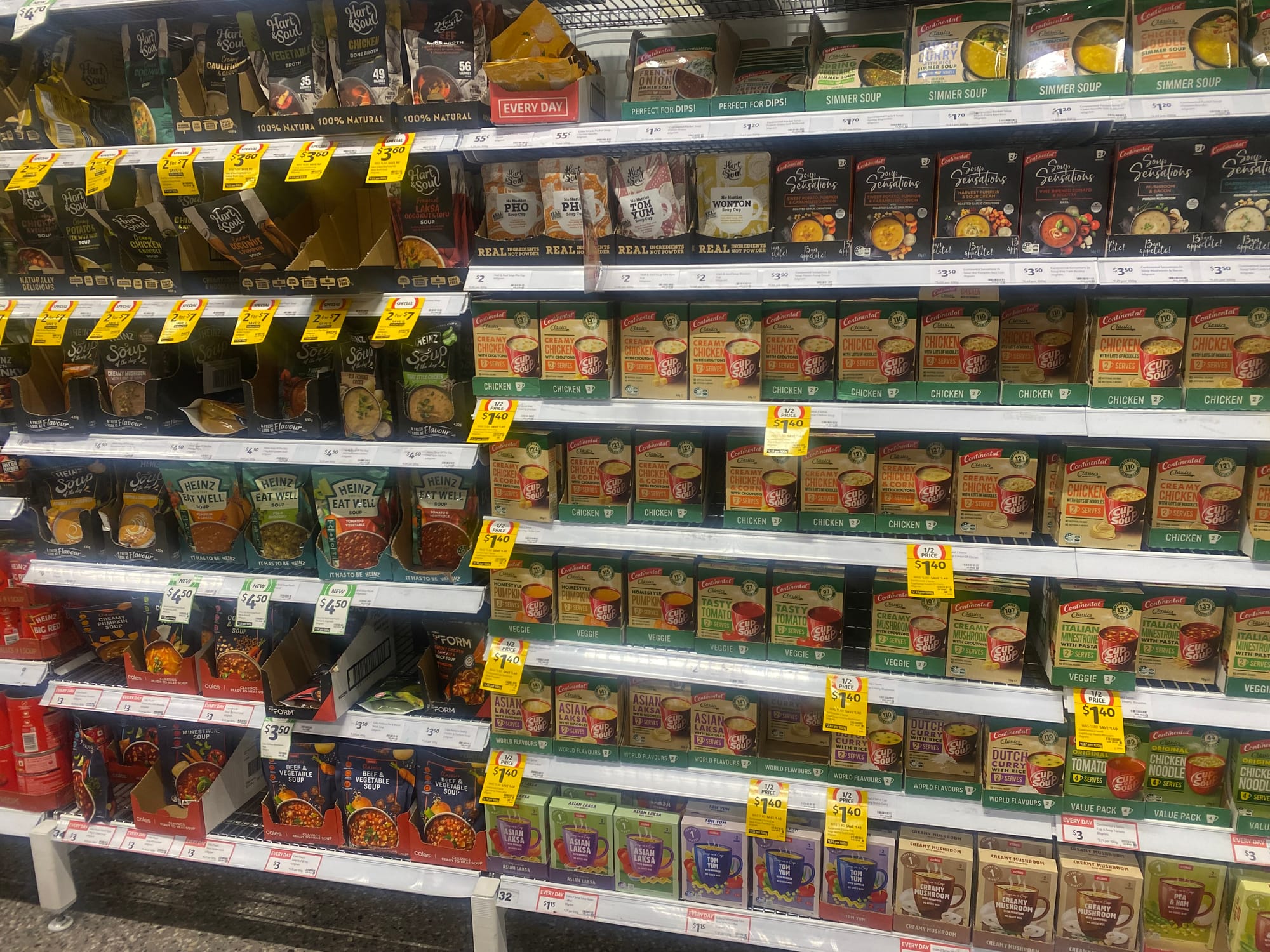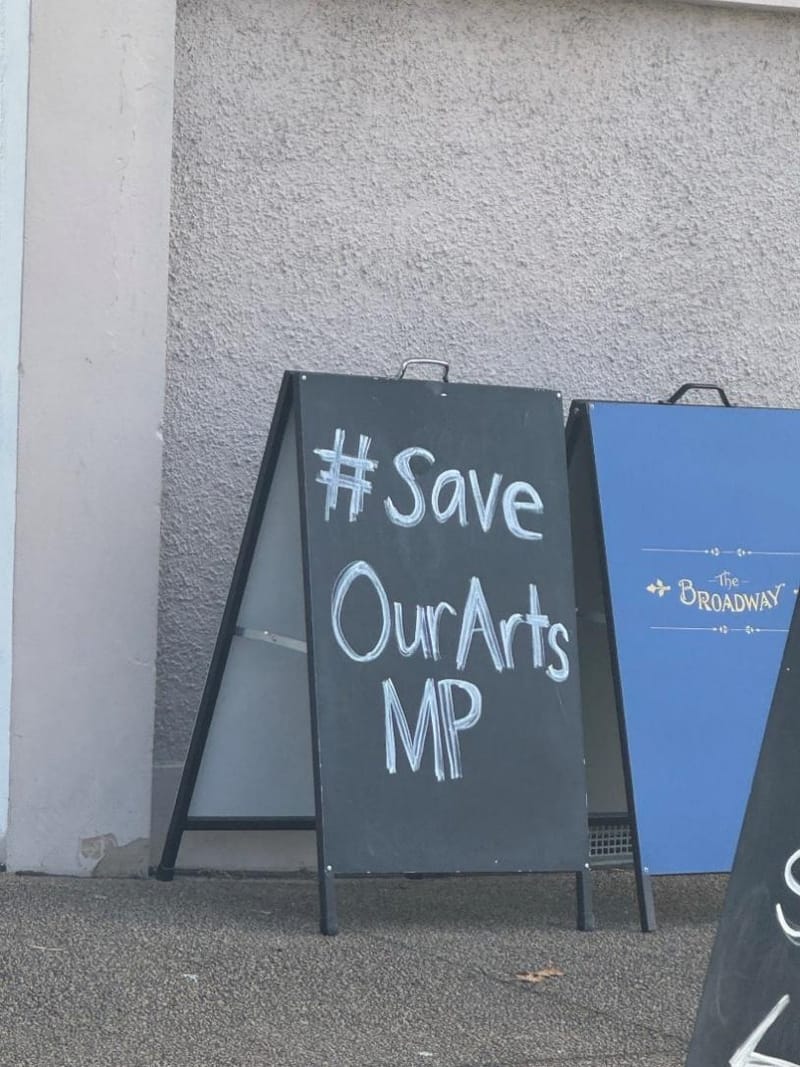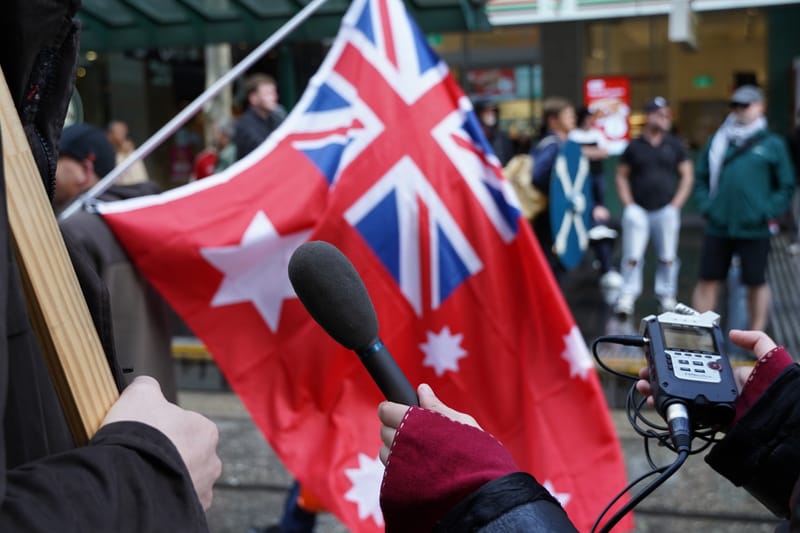Fresh promises to tackle price gouging | MOJO explains
Fair food pricing is a feature of both major parties’ campaigns.

During election campaign amid rising living costs there were fresh vows to address the issue of supermarket price gouging.
But while fluctuating grocery prices can be attributed to issues of supply and demand, price gouging itself is difficult to measure, according to Monash University associate professor of economics Dr Chengsi Wang.
“[Price gouging] refers to the scenario where the price increases in an excessive or unfair way,” Wang said.
"But it’s difficult to define what is excessive or unfair.”
The Australian Competition and Consumer Commission (ACCC), published its final 441-page supermarket report, finding that the two major Australian grocers, Coles and Woolworths, are the most profitable globally.
Prime Minister Anthony Albanese announced Labor’s plans for combatting Australia’s supermarket duopoly and their alleged practice of unfairly raising the prices of products.
“Price gouging is when supermarkets are taking the piss out of Australian consumers,” Albanese said.
To tackle this issue, Albanese said his government will implement a task force composed of the ACCC, the Treasury and market experts to investigate how best to hold supermarkets legally accountable for price gouging.
The task force will be created by the end of the year.
But the year-long inquiry by the ACCC reported no findings of price gouging in the supermarket sector, and Wang questions whether this task force would be effective “if there is no evidence for price gouging”.
Not long after the PM’s comments, the then Leader of the Opposition Peter Dutton responded with the Coalition’s plans to tackle the issue.
Backed by the Greens, the Coalition had planned to break up the supermarket giants through divestiture in order to introduce more competition.
Divestiture powers would involve the partial disposal of assets or operations through sales, business units or divisions if there was any evidence of market dominance within the supermarket sector.
The ACCC, however, does not recommend this.
Equally, Wang is uncertain of the effectiveness of the Opposition’s plans.
“It's difficult to predict what's going to happen following the breakup, because it depends how you break it up and also whether the competition will become effective following the breakup,” he said.
Who is it affecting?
While the ACCC found no proof of supermarket price gouging, research shows that many people in Australia are finding it harder to do the weekly shop. Among them are younger voters and university students.
Research by Finder found that more than two-thirds (nearly 69 per cent) of Gen Z were experiencing issues related to financial stress.
Specifically, 39 per cent of Australians say the food shop is causing financial stress, up 29 per cent from three years ago.
Niksha Patel, a postgraduate student at Monash University, says she sees a difference in what she’s spending on groceries now compared to a few years ago.
“I can see the difference in my groceries. Every month or every two weeks it keeps increasing,” she said.
To bring down the cost, Patel has looked for alternatives such as Aldi.
“The same thing you get at Coles, you can get at Aldi but for cheaper,” she says.
Would the election promises work?
Professor Allan Fels, an economist and the ACCC’s former chairperson, told the ABC that while he doesn’t believe supermarkets are guilty of price gouging, he thinks that there is evidence of predatory pricing.
“I do think the recent allegations in court about Woolies and Coles putting up prices temporarily for a few days by 10 per cent, then dropping them by 5 per cent then saying there’s a price cut, that to me, is price gouging by unfairly exploiting consumers,” Fels said.
Fels believes that a greater focus in tackling the issue should be on competition laws, similar to European Union (EU) and UK laws.
The EU laws prohibit excessive prices in accordance with competition laws. In this case, if price gouging was believed to be occurring, the courts would investigate if prices are excessive and give instructions to reduce them or issue financial penalties following an ACCC application to the court of law.
A similar bill was introduced by the Greens in 2024 but knocked back by Labor and the Liberal Party.
Wang said Australian regulatory frameworks such as that provided by the ACCC are sufficient in holding big players accountable as they’re under strict regulations, and that, generally, we should continue to “rely on existing competition laws to resolve these competition issues”.
“Unless there is a general agreement that there is a certain point that the law can't do anything about it … then we might think about updating the law, but we should be very cautious,” Wang says.
Out of the 20 recommendations outlined by the ACCC, three aim to incentivise competition by addressing planning and construction issues.
“The ACCC’s solution is to reduce the requirement for purchasing construction sites for building new supermarkets and therefore incentivise new players to enter the market," Wang says.
"So that's a natural way to think about bringing more competition."
Equally, in increasing competition, Wang suggests a greater focus on consumer price transparency could be beneficial. This would be similar to price comparison websites such as in the electricity market. This would allow consumers to have a better understanding of product price comparisons.
“If there's no way we can, in the short run, introduce more players into this market, then another way to increase competition is to increase consumers' awareness of prices,” Wang said.
“This will bring down prices because consumers can always actively compare prices and that will have downward pressure.”





